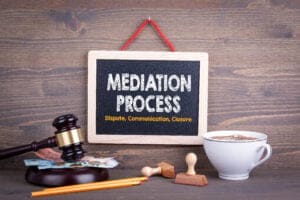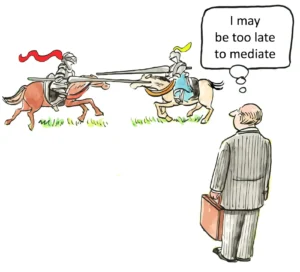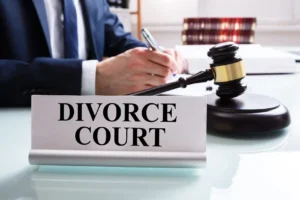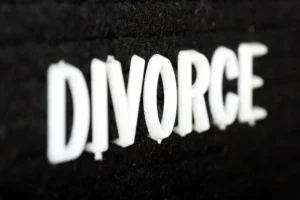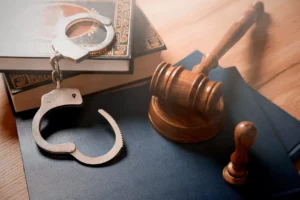Presumption of Innocence: Cornerstone of Criminal Justice
The presumption of innocence stands as a fundamental principle in the American criminal justice system, serving as a cornerstone of due process and fair trial rights. This legal doctrine asserts that an individual accused of a crime is considered innocent until proven guilty beyond a reasonable doubt in a court of law. The presumption of innocence is not merely a procedural safeguard; it is a substantive right that protects the accused from arbitrary prosecution and conviction, ensuring that the burden of proof rests squarely on the shoulders of the state.
The origins of this principle can be traced back to ancient legal systems, but its formal incorporation into American jurisprudence occurred through a series of landmark court decisions and legislative actions. The U.S. Supreme Court, in Coffin v. United States (1895), explicitly recognized the presumption of innocence as a fundamental component of criminal law, stating that it is “the undoubted law, axiomatic and elementary, and its enforcement lies at the foundation of the administration of our criminal law.”
This principle is intrinsically linked to other constitutional protections, such as the right to remain silent, the right to counsel, and the prohibition against self-incrimination. Together, these rights form a bulwark against potential abuses of state power and ensure that criminal convictions are based on evidence rather than mere accusation or suspicion.
The presumption of innocence operates on multiple levels within the criminal justice system. At its most basic, it requires that the prosecution bear the burden of proving each element of a crime beyond a reasonable doubt. This standard of proof is the highest in our legal system, reflecting the gravity of criminal convictions and their potential consequences for individual liberty.
In practice, the presumption of innocence influences every stage of criminal proceedings, from arrest to trial and sentencing. Law enforcement officers and prosecutors must respect this principle when making arrests, filing charges, and presenting evidence. Judges are obligated to instruct juries on the presumption of innocence and its implications for their deliberations. Defense attorneys rely on this principle as a cornerstone of their advocacy, using it to challenge evidence, cross-examine witnesses, and argue for their clients’ acquittal.
The presumption of innocence also has significant implications for pretrial procedures and bail determinations. The Supreme Court has held that pretrial detention should be the exception rather than the rule, recognizing that prolonged incarceration before trial can prejudice the accused’s ability to mount an effective defense and may unduly influence jurors’ perceptions of guilt.
Despite its fundamental importance, the presumption of innocence faces numerous challenges in contemporary society. The proliferation of media coverage and the instant dissemination of information through social media platforms can create a court of public opinion that often presumes guilt long before a trial begins. High-profile cases, in particular, can generate intense public scrutiny and prejudgment, making it difficult to empanel an impartial jury.
Moreover, the expansion of prosecutorial discretion and the prevalence of plea bargaining in the American legal system have raised concerns about the erosion of the presumption of innocence. Critics argue that the pressure to accept plea deals, often to avoid potentially harsh sentences, can lead innocent defendants to plead guilty, effectively bypassing the protections afforded by a trial.
The presumption of innocence also intersects with complex issues of race, class, and systemic bias within the criminal justice system. Studies have shown that certain demographic groups are more likely to be arrested, charged, and convicted of crimes, raising questions about the equitable application of this principle across different communities.
In recent years, there has been increased scrutiny of how the presumption of innocence applies in cases involving sexual assault and domestic violence. The #MeToo movement has sparked a national conversation about balancing the rights of the accused with the need to take allegations of sexual misconduct seriously. This tension highlights the ongoing challenge of upholding the presumption of innocence while also addressing societal concerns about underreporting and inadequate prosecution of certain types of crimes.
The presumption of innocence extends beyond the courtroom and into other areas of the legal system. For instance, in the context of asset forfeiture, there have been debates about whether current practices adequately protect the property rights of individuals who have not been convicted of a crime. Civil asset forfeiture laws in many jurisdictions allow law enforcement to seize property suspected of being connected to criminal activity, often without requiring a criminal conviction. Critics argue that this practice effectively reverses the presumption of innocence, requiring property owners to prove their innocence to reclaim their assets.
The principle also plays a crucial role in post-conviction proceedings. When new evidence comes to light that casts doubt on a conviction, the presumption of innocence informs how courts approach claims of actual innocence. The standard for overturning a conviction based on new evidence is high, reflecting the tension between finality in criminal judgments and the imperative to correct wrongful convictions.
In the realm of international law, the presumption of innocence is recognized as a fundamental human right. The Universal Declaration of Human Rights and the International Covenant on Civil and Political Rights both enshrine this principle, reflecting its global significance. However, the application of this right varies significantly across different legal systems and cultures, highlighting the challenges of implementing universal human rights standards in diverse contexts.
The presumption of innocence also intersects with emerging technologies and their impact on criminal investigations and trials. The use of DNA evidence, for example, has revolutionized forensic science and provided a powerful tool for both exonerating the innocent and convicting the guilty. However, the complexity of DNA analysis and the potential for misinterpretation or contamination of evidence underscore the ongoing need for rigorous scrutiny of scientific evidence in light of the presumption of innocence.
Similarly, the increasing use of artificial intelligence and predictive algorithms in law enforcement and judicial decision-making raises new questions about how to preserve the presumption of innocence in an era of big data. Concerns have been raised about the potential for algorithmic bias and the opacity of machine learning systems, which could undermine the fairness and transparency that the presumption of innocence is meant to ensure.
The presumption of innocence also has implications for how society treats individuals with criminal records. The collateral consequences of criminal convictions, such as restrictions on employment, housing, and voting rights, can persist long after a sentence has been served. This raises questions about the extent to which the presumption of innocence should inform policies on criminal record expungement and the reintegration of formerly incarcerated individuals into society.
In the context of national security and counterterrorism efforts, the presumption of innocence has faced significant challenges. The use of preventive detention, secret evidence, and specialized courts in terrorism cases has led to debates about whether traditional due process protections, including the presumption of innocence, can be reconciled with the perceived need for enhanced security measures.
The principle of presumption of innocence also intersects with issues of mental health in the criminal justice system. For defendants with mental illnesses or cognitive impairments, ensuring a fair trial that respects the presumption of innocence may require additional safeguards and accommodations. This includes considerations of competency to stand trial and the use of mental health defenses, which can complicate the application of standard trial procedures.
In the realm of juvenile justice, the presumption of innocence takes on additional dimensions. The recognition that adolescents have different cognitive and emotional capacities than adults has led to specialized procedures and standards in juvenile courts. Balancing the presumption of innocence with the rehabilitative goals of the juvenile justice system presents unique challenges and opportunities for reform.
The presumption of innocence also plays a role in shaping public policy on crime prevention and law enforcement strategies. Proponents of community policing and restorative justice models argue that these approaches are more consistent with the presumption of innocence, as they focus on building trust and addressing the root causes of crime rather than presuming criminality in certain communities.
In the digital age, the presumption of innocence faces new challenges related to online privacy and digital evidence. The vast amount of personal data available through electronic devices and online platforms has expanded the scope of potential evidence in criminal cases. This raises questions about the appropriate balance between privacy rights and law enforcement needs, and how to apply the presumption of innocence to digital footprints that may be subject to multiple interpretations.
The principle also intersects with debates about prosecutorial ethics and the role of prosecutors in the criminal justice system. The American Bar Association’s Model Rules of Professional Conduct require prosecutors to act as “ministers of justice” rather than merely advocates for conviction. This ethical obligation includes respecting the presumption of innocence and disclosing exculpatory evidence, as established in Brady v. Maryland (1963).
The presumption of innocence has implications for prison reform efforts as well. Critics of mass incarceration argue that high rates of pretrial detention effectively punish individuals before they have been convicted of a crime, undermining the presumption of innocence. This has led to calls for bail reform and increased use of alternatives to incarceration for non-violent offenses.
In the context of corporate criminal liability, the presumption of innocence raises complex questions about how to attribute criminal intent to organizational entities. The doctrine of respondeat superior, which holds corporations vicariously liable for the actions of their employees, has been criticized as potentially conflicting with the presumption of innocence by imposing a form of strict liability on organizations.
The presumption of innocence also intersects with debates about victim rights in criminal proceedings. While the principle is designed to protect the accused, there is growing recognition of the need to balance this protection with respect for the dignity and rights of crime victims. This has led to the development of victim impact statements and other mechanisms for victim participation in criminal proceedings, which must be carefully balanced against the defendant’s right to a fair trial.
The principle of presumption of innocence extends to extradition proceedings as well. When a country requests the extradition of an individual to face criminal charges, the presumption of innocence informs the standards and procedures for evaluating the request. This includes assessing whether there is sufficient evidence to justify extradition and whether the requesting country’s legal system adequately protects the rights of the accused.
In the realm of administrative law, the presumption of innocence has implications for regulatory enforcement actions and civil penalties. While these proceedings are not criminal in nature, courts have recognized the need for due process protections that reflect the spirit of the presumption of innocence, particularly when severe penalties are at stake.
The presumption of innocence also plays a role in shaping media ethics and the responsible reporting of criminal cases. Journalists and news organizations must navigate the tension between the public’s right to information and the potential to prejudice ongoing legal proceedings. This has led to debates about the appropriate limits on pretrial publicity and the role of the press in upholding democratic values, including the presumption of innocence.
In conclusion, the presumption of innocence remains a vital principle in the American legal system, serving as a bulwark against arbitrary state power and ensuring that criminal convictions are based on evidence rather than mere accusation. As society continues to grapple with complex issues of justice, security, and individual rights, the presumption of innocence will undoubtedly face new challenges and interpretations. Its enduring importance lies in its capacity to adapt to changing circumstances while maintaining its core function: protecting the fundamental rights of the accused and upholding the integrity of the criminal justice system.
Website citations used for this article:
- https://www.law.cornell.edu/wex/presumption_of_innocence
- https://www.yalelawjournal.org/article/arbitrariness-review-made-reasonable
- https://www.americanbar.org/groups/environment_energy_resources/publications/trends/2018-2019/march-april-2019/arbitrary-and-capricious/
- https://scholarship.law.edu/cgi/viewcontent.cgi?article=1169&context=scholar%2F1000
- https://ij.org/press-release/supreme-court-upholds-principle-innocent-proven-guilty/
- https://arisa-project.eu/the-presumption-of-innocence-and-the-media-coverage-of-criminal-cases/
- https://study.com/academy/lesson/innocent-until-proven-guilty-origin-law-meaning.html
- https://study.com/academy/lesson/the-presumption-of-innocence-definition-lesson.html
- https://www.arthurpressmanlaw.com/exploring-the-presumption-of-innocence-in-new-york-criminal-cases/
- http://legalhistorysources.com/Canon%20Law/PresumptionInnocence.htm
- https://law.unimelb.edu.au/__data/assets/pdf_file/0006/3446358/Paper_Capital-Punishment-Justice-Project.pdf
- https://www.pumphreylawfirm.com/blog/innocent-until-proven-guilty-the-history-and-current-application-of-the-presumption-of-innocence/
- https://www.lawofficesofkeithnedwick.com/blog/2023/october/presumption-of-innocence-debunking-common-miscon/





